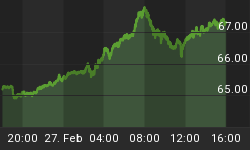Reportedly, Bill O'Reilly referred to a recent story out of our nation's capital as "bigger than Watergate."
Whether the story is bigger than Watergate or not, it is definitely a scandal of huge proportions.
To sum it up, on April 23, 2009, New York Attorney General Andrew Cuomo sent a letter to Chairman of the U.S. Senate Committee on Banking, Housing, and Urban Affairs Chris Dodd; Chairman of the House Financial Services Committee Barney Frank; SEC Chairwoman Mary Schapiro; and Chairwoman of the Congressional Oversight Panel Elizabeth Warren.
The letter outlined how former Treasury Secretary Paulson and Fed Chairman Ben Bernanke forced Bank of America's acquisition of Merrill Lynch - even though Bank of America CEO Ken Lewis and the board of directors tried to pull the plug on the deal after it turned out that Merrill Lynch was far deeper in debt than it had admitted.
In the words of Attorney General Cuomo himself:
Immediately after learning on December 14, 2008 of what Lewis described as the "staggering amount of deterioration" at Merrill Lynch, Lewis conferred with counsel to determine if Bank of America had grounds to rescind the merger agreement by using a clause that allowed Bank of America to exit the deal if a material adverse event ("MAC") occurred. After a series of internal consultations and consultations with counsel, on December 17, 2008, Lewis informed then-Treasury Secretary Henry Paulson that Bank of America was seriously considering invoking the MAC clause. Paulson asked Lewis to come to Washington that evening to discuss the matter.
Bank of America's attempt to exit the merger came to a halt on December 21, 2008. That day, Lewis informed Secretary Paulson that Bank of America still wanted to exit the merger agreement. According to Lewis, Secretary Paulson then advised Lewis that, if Bank of America invoked the MAC, its management and Board would be replaced.
Meanwhile Ken Lewis has been sacked as chairman of the board at Bank of America... even though he might well have been the only conscientious and honest player in this scheme. And now the sharks have started to turn on each other: according to Cuomo, Paulson "largely corroborated Lewis's account" and informed the attorney general's office that he "made the threat at the request of Chairman Bernanke." The latter has so far chosen to keep his mouth shut.
The key factor here is not that the Devious Duo forced Bank of America into a merger it didn't want to commit to. Granted, that's an unheard-of interference of government in the free market, but we're quite sure that the Powers-That-Be could sweep it under the rug by invoking the "greater good."
No, the part of the story that could really break Al Paulson and Don Bernanke's necks is the failure to inform the Securities and Exchange Commission, as well as Bank of America's shareholders, of the extent of toxic waste Bank of America was forced to accept. That's fraud, pure and simple.
And that's a pretty good sign that this is not going to go away. Some of the Casey Research editors - yes, we do have bets out - think it's going to be huge, especially since the scandal happened on President Bush's watch and the Democrats are in control of Congress. Chances are that either Paulson or Bernanke is going down, depending who cuts a deal with prosecutors first. Their "friends in high places" may be able to keep the Justice Department out of it, but they won't be able to control ambitious state officials like Cuomo. There's blood in the water, and this is a career maker for a prosecutor.
So what happens when the highest financial officials in the U.S. government are unmasked as crooks? Will there be riots in the streets? Will the average American pick up his torch and pitchfork and march on Washington D.C.? Probably not. But it may happen at some point as we are moving deeper into the Greater Depression, a term coined by Doug Casey, our resident contrarian investment guru. Read Doug's FREE, 13-page special report about what will happen when social unrest breaks out in the United States, and what you should do to prepare your assets for that time. Click here to read it now.















